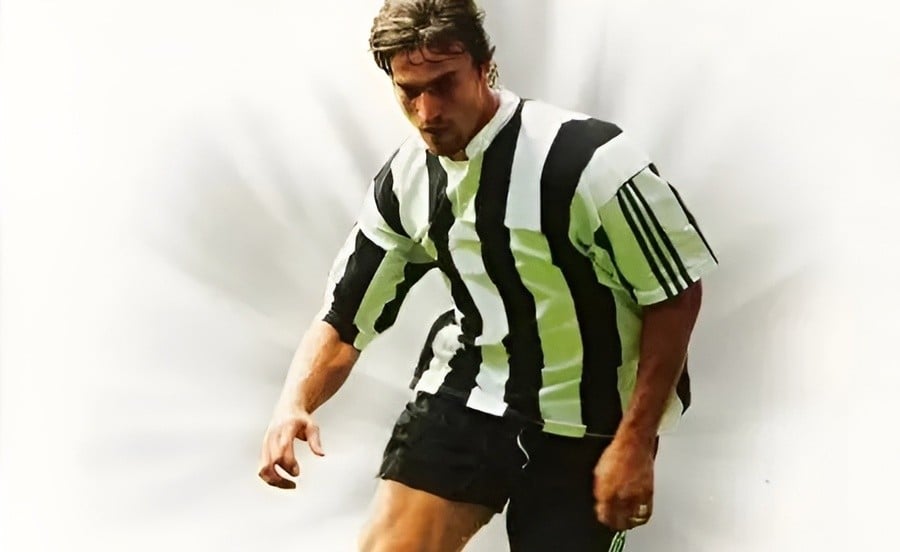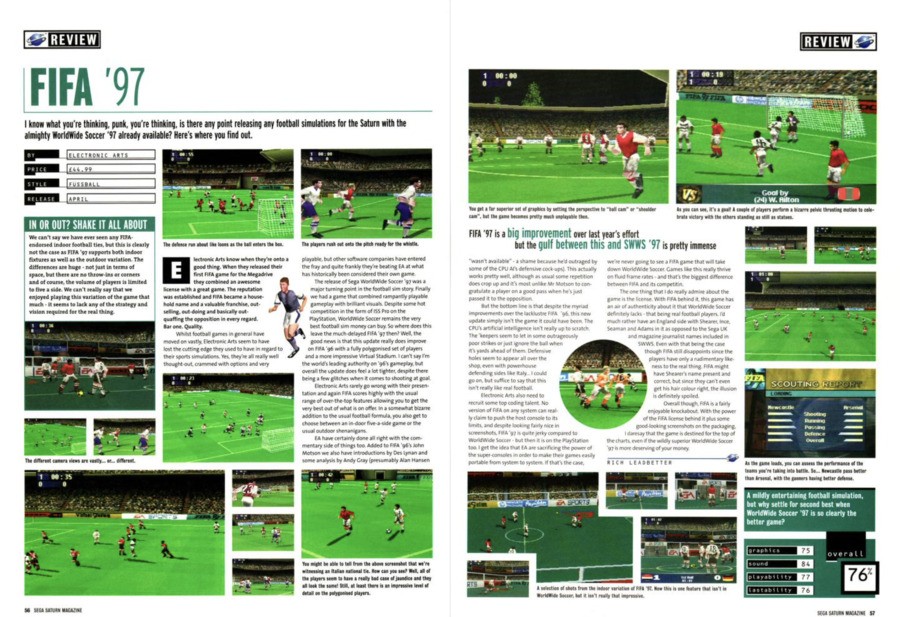
There are a lot of common problems that tend to crop up while making a video game, but having your whole office destroyed in an explosion isn't typically one of them. Nevertheless, that's exactly what happened to Perfect Entertainment's Manchester studio in 1996 while it was in the process of co-developing the Sega Saturn port of FIFA '97 and the PC adventure game Discworld II, alongside its London head office.
On Saturday, June 15th, 1996, members of the IRA planted a lorry bomb on Corporation Street near the Arndale shopping center in Manchester, in the UK, leading an estimated 80,000 people to evacuate the city center.
Disposal officers were dispatched from the neighbouring city of Liverpool, but they were ultimately unsuccessful in deactivating it. So, at 11:17 am BST, the bomb eventually exploded, destroying the surrounding area (including Perfect's Manchester offices) and leaving many people injured. Despite the incredible power of the blast, there were, fortunately, no deaths recorded on the day — which is thanks in large part to the remarkable response from the emergency services. However, the city center lay in ruins after the event with various business owners unsure of what remained of their place of work.
John Young was a developer at the Manchester studio working on the game engine for Discworld II, while a couple of other programmers were assigned to the Sega Saturn port of FIFA. He agreed to tell us more about his memories of the event and how he first found out about the bombing.
"Our office overlooked Deansgate," says Young. "There was a footbridge over Deansgate from the old Shambles Square that connected to a foot ramp with shop units that led down to the junction of Deansgate and Blackfriars; our entrance was at the top of the ramp by the bridge, our office was above the shop units on the ramp; the building was demolished just this summer.
"Nobody was in the office that Saturday morning. I got a call from our alarm company saying that our (burglar) alarm was going off, but also that pretty much every alarm in the area had gone off too. I don't remember whether they mentioned a bomb or whether I heard about it via radio or TV, but there was no way to get into the City center all weekend. I rang our office phone and was reassured that it was answered by our fax machine - so I knew the office still existed! On Monday morning I attended a meeting at the Town Hall for business managers in the affected area and was able to get a pass that would allow access a couple of days later."
When Young was finally able to get inside the studio to check on the damage, the office was in a sorry state. As he recalls, "Glass [was] showered all over the foot ramp outside. Inside, in the internal corridor, the ceiling tiles were displaced and light fittings were dangling by their cables. Our office door took some force to open. The office ceiling was wrecked too and all the window frames were displaced and hanging out precariously. The wall behind my desk by the window was displaced inward. I think I just powered down our server and left [in shock]."
Though the office was worse for wear, much of the actual development equipment had survived, so there were no issues with any data or assets being unrecoverable. However, the blast now meant that Perfect was without its Manchester office and that it would need to find one quickly to remain on schedule with its many projects. Fortunately, though, the studio was already looking at other locations, ahead of the incident, and was due to move into Portland Tower (since renamed to Manchester One) a few weeks later. Perfect therefore brought the relocation forward and tried to recover as best as possible.
All in all, Young doesn't remember the bomb causing too many delays to Discworld II's development, but former EA employees we've spoken to including Pete Andrew (the lead programmer on the PlayStation 1 port of FIFA '97 at EA Seattle) and Dylan Miklashek (the development director on the Saturn port at EA Canada) do recall the FIFA 97 port falling behind on its milestones.
They were like, ‘Yeah, our milestones are going to be late, but we think we’ve got a good excuse. Our whole offices were blown up'. So Dylan Miklashek had to go sit with the developers in Manchester and help them ship it. I was also sent along to help them.
Andrew recalls, "They were taking our PlayStation code and adapting it, we were the ones doing most of the check-in calls, ‘Hey, are there any problems? Do you understand the code dump? Is there anything you want to talk about?’ We were just doing something like a dev relations thing, even though we were also a developer. And so, there was one time, we got on the phone with them and they were like, ‘Yeah, our milestones are going to be late, but we think we’ve got a good excuse. Our whole offices were blown up'. So Dylan Miklashek had to go sit with the developers in Manchester and help them ship it. I was also sent along to help them."
Miklashek remembers his response upon hearing the news, "We were like, ‘Come on, the dog ate your homework? Your office got blown up? Come on! Is this for real?’ But it had! The bomb had gone off and none of them had gotten hurt, but it had blown the windows into their office because they were down near that street where it went off. So then they had to move a couple of blocks away to this other building sort of near all the hotels, near the other end of the Arndale center, near the canal. And it took them a few weeks to set up shop. So EA sent me off to get them going again. But it was crazy to hear that news. ‘Sorry, we’re not going to be able to get a build to you’. ‘Why?’ ‘Because a bomb just went off and our office got destroyed.’ We'd never heard that one before."
As history tells us, FIFA '97 did eventually end up shipping for the Sega Saturn but this version of the game was released much later than the PlayStation 1, Windows, Sega Mega Drive, and Super Nintendo versions, arriving in 1997.

The Saturn port ended up receiving some fairly okay reviews following its launch, with critics praising its use of the license and its audio while pointing out a few of its more annoying flaws.
Rich Leadbetter (now of Digital Foundry fame), for instance, gave it a respectable 76% in Sega Saturn Magazine and called it "a fairly enjoyable knockabout" even if "the wildly superior WorldWide Soccer ’97 is more deserving of your money", while Saturn Power's James Price awarded it a slightly lower 74% and claimed, "FIFA ’97 isn’t a terrible game or, for that matter, a particularly bad one [...] but, so incompetent is it at times (for the want of a better word) you’ll need the patience of a saint to endure its ‘peculiarities’."
It's clear from the above that FIFA '97 is no great masterpiece, but given the fascinating story behind its development, it's clear the developers deserve a ton of praise for managing to finish the project, considering some of the exceptional circumstances they had to endure while putting it all together.
